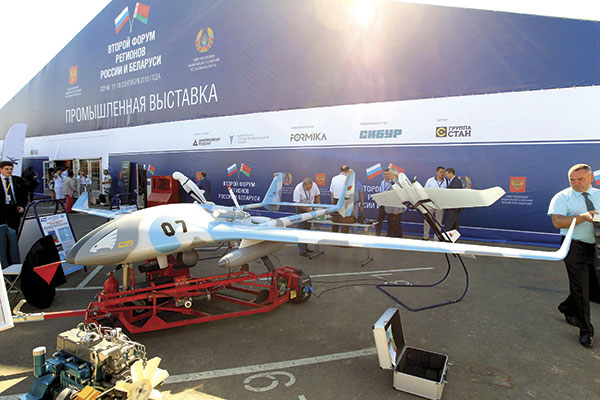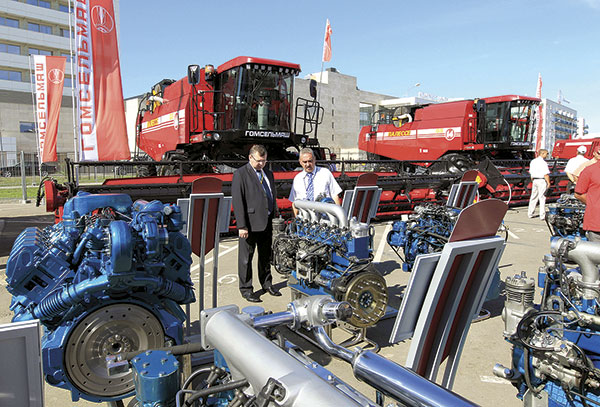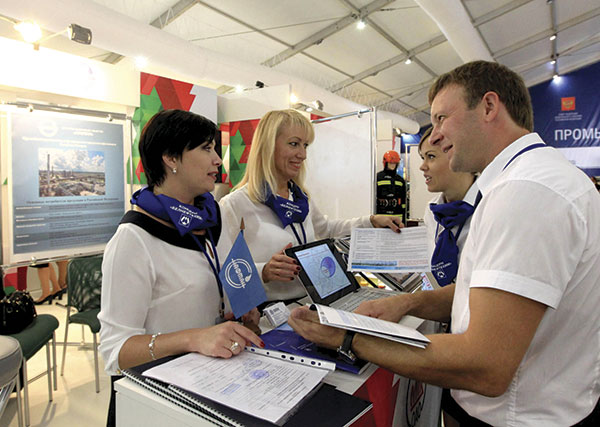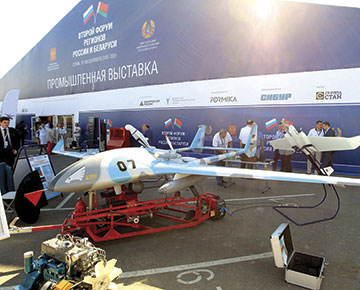
During the plenary session of the 2nd Forum of Regions of Belarus and Russia in Sochi
At the plenary session — held on the second day of the 2nd Forum of Regions of Belarus and Russia, Alexander Lukashenko shared his view that modern times have brought no release from disasters, crises or wars. “It is not the power of law but the power of force that dominates the global arena. A global redistribution of the spheres of influence can now be observed. However, egotistic ambitions, settlements and interests are not worth human lives. This should be remembered by heads of state, public figures and nations,” he said.
“The world is experiencing a lack of prospects due to sanctions and the isolation of certain states, as well as the force of military threat. We’ve always been against these methods,” the Belarusian President added. When speaking of the Union State, Mr. Lukashenko noted that it should become the nucleus of the Eurasian Economic Union. “We need to be efficient in our use of the potential for integration,” he continued. “When our plans are completed, Belarus and Russia will create a strong impetus to the integration of other countries.”

Belarus brings innovative products to the Russian market
At a further meeting on the same day, Mr. Lukashenko noted that Belarus values its co-operation with the Russian regions, adding that our two states control problems in their bilateral relations similarly. He reminded them that he always personally meets heads of the Russian regions when they come to Belarus to discuss topical issues. “I’m always thankful to the Russian regions,” the President said. “Our Belarusian-Russian relations have been saved by the regions of Russia in the past. If we hadn’t co-operated then, it would have been truly difficult to preserve the relations we had in Soviet times. After the USSR collapse, times were hard.” According to the Head of State, Belarus’s turnover with some Russian regions is even higher than with other countries. “Around half of the turnover of Belarus is accounted for by Russia — which is the basis for the significance of our relations,” he stressed.
As regards the Sochi event, Mr. Lukashenko believes it’s already headline making. “We’ve outlined a concrete theme for the upper chambers of our parliaments and they will be pleased to comply with it,” he said. The President expressed gratitude to Vladimir Putin and governors for the well-organised event, expressing confidence that it would be held regularly. In turn, the Russian President noted that Belarusian-Russian relations are developing successfully. “Of course, some issues need our special attention but, in general, the goals we set during our meeting will be achievable,” he said.

Belarus brings contemporary developments to Sochi
The event, initiated by the upper chambers of our two states’ parliaments and supported by the presidents, was on a large scale. On the eve of the meeting, an exhibition of products opened on the Black Sea bank in the city. Belarus and Russia were not in competition there, but merely demonstrating the results of joint projects. The forum’s agenda focused mainly on a discussion of the Union State’s industrial policy and included round table discussions and press conferences. Six intergovernmental and 19 interregional agreements were signed as a result and the topical issue of Belarusian product supplies to Russian trading networks was discussed. The exhibition focused on import substitution and industrial co-operation and it is clear from the outcomes that a great deal of co-operation has taken place. Such a concentrated demonstration of mutual achievements is extremely positive. Belarusian-Russian co-operation in some spheres of industry is already routine: our scientists have achieved considerable successes together and many companies have joint agreements in place.

The list of industries where Belarus and Russia enjoy joint developments and produce high-tech and competitive products is impressive: machine building, petro-chemistry, military-technical products, light industry, pharmaceuticals and IT, among others. There is a fundamental flaw in any discussions on sanctions, anti-sanctions or other economic leverages and instruments of global political dialogue, in that the key is that Belarus and Russia, while complementing each other, are quite self-sufficient states. This is confirmed by a convincing show of jointly manufactured products, including clothes and aviation supplies and machinery. Russian governors often visit Minsk, and the Belarusian capital welcomes delegations from Russian regions approximately once a month. During such meetings, the President always emphasises that interregional co-operation creates the foundation for our Union State and, in hard times, has even saved it. The results of this collaboration are evident and the recent Sochi event was a perfect demonstration.
By Yevgeny Kononov











